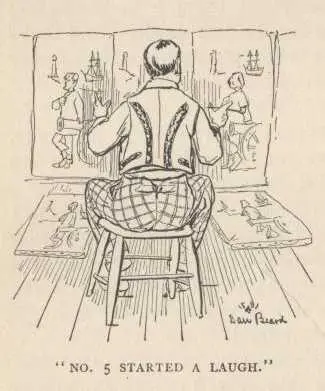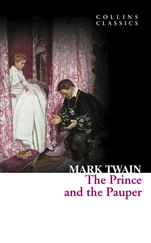Mark Twain - The American Claimant
Здесь есть возможность читать онлайн «Mark Twain - The American Claimant» весь текст электронной книги совершенно бесплатно (целиком полную версию без сокращений). В некоторых случаях можно слушать аудио, скачать через торрент в формате fb2 и присутствует краткое содержание. Год выпуска: 2004, Жанр: Классическая проза, Юмористическая проза, на английском языке. Описание произведения, (предисловие) а так же отзывы посетителей доступны на портале библиотеки ЛибКат.
- Название:The American Claimant
- Автор:
- Жанр:
- Год:2004
- ISBN:нет данных
- Рейтинг книги:5 / 5. Голосов: 1
-
Избранное:Добавить в избранное
- Отзывы:
-
Ваша оценка:
- 100
- 1
- 2
- 3
- 4
- 5
The American Claimant: краткое содержание, описание и аннотация
Предлагаем к чтению аннотацию, описание, краткое содержание или предисловие (зависит от того, что написал сам автор книги «The American Claimant»). Если вы не нашли необходимую информацию о книге — напишите в комментариях, мы постараемся отыскать её.
The American Claimant — читать онлайн бесплатно полную книгу (весь текст) целиком
Ниже представлен текст книги, разбитый по страницам. Система сохранения места последней прочитанной страницы, позволяет с удобством читать онлайн бесплатно книгу «The American Claimant», без необходимости каждый раз заново искать на чём Вы остановились. Поставьте закладку, и сможете в любой момент перейти на страницу, на которой закончили чтение.
Интервал:
Закладка:
"Not yet, Barrow—presently."
Mrs. Marsh and Hattie tried, offering gentle and kindly persuasions; but he said;
"I would rather wait—till he comes."
Even old Marsh began to have suspicions that maybe he had been a trifle too "brash," as he called it in the privacy of his soul, and he pulled himself together and started toward Tracy with invitation in his eyes; but Tracy warned him off with a gesture which was quite positive and eloquent. Then followed the stillest quarter of an hour which had ever been known in that house at that time of day. It was so still, and so solemn withal, that when somebody's cup slipped from his fingers and landed in his plate the shock made people start, and the sharp sound seemed as indecorous there and as out of place as if a coffin and mourners were imminent and being waited for. And at last when Brady's feet came clattering down the stairs the sacrilege seemed unbearable. Everybody rose softly and turned toward the door, where stood Tracy; then with a common impulse, moved a step or two in that direction, and stopped. While they gazed, young Brady arrived, panting, and put into Tracy's hand,—sure enough—an envelope. Tracy fastened a bland victorious eye upon the gazers, and kept it there till one by one they dropped their eyes, vanquished and embarrassed. Then he tore open the telegram and glanced at its message. The yellow paper fell from his fingers and fluttered to the floor, and his face turned white. There was nothing there but one word—
"Thanks."
The humorist of the house, the tall, raw-boned Billy Nash, caulker from the navy yard, was standing in the rear of the crowd. In the midst of the pathetic silence that was now brooding over the place and moving some few hearts there toward compassion, he began to whimper, then he put his handkerchief to his eyes and buried his face in the neck of the bashfulest young fellow in the company, a navy-yard blacksmith, shrieked "Oh, pappy, how could you!" and began to bawl like a teething baby, if one may imagine a baby with the energy and the devastating voice of a jackass.
So perfect was that imitation of a child's cry, and so vast the scale of it and so ridiculous the aspect of the performer, that all gravity was swept from the place as if by a hurricane, and almost everybody there joined in the crash of laughter provoked by the exhibition. Then the small mob began to take its revenge—revenge for the discomfort and apprehension it had brought upon itself by its own too rash freshness of a little while before. It guyed its poor victim, baited him, worried him, as dogs do with a cornered cat. The victim answered back with defiances and challenges which included everybody, and which only gave the sport new spirit and variety; but when he changed his tactics and began to single out individuals and invite them by name, the fun lost its funniness and the interest of the show died out, along with the noise.
Finally Marsh was about to take an innings, but Barrow said:
"Never mind, now—leave him alone. You've no account with him but a money account. I'll take care of that myself."
The distressed and worried landlady gave Barrow a fervently grateful look for his championship of the abused stranger; and the pet of the house, a very prism in her cheap but ravishing Sunday rig, blew him a kiss from the tips of her fingers and said, with the darlingest smile and a sweet little toss of her head:
"You're the only man here, and I'm going to set my cap for you, you dear old thing!"
"For shame, Puss! How you talk! I never saw such a child!"
It took a good deal of argument and persuasion—that is to say, petting, under these disguises—to get Tracy to entertain the idea of breakfast. He at first said he would never eat again in that house; and added that he had enough firmness of character, he trusted, to enable him to starve like a man when the alternative was to eat insult with his bread.
When he had finished his breakfast, Barrow took him to his room, furnished him a pipe, and said cheerily:
"Now, old fellow, take in your battle-flag out of the wet, you're not in the hostile camp any more. You're a little upset by your troubles, and that's natural enough, but don't let your mind run on them anymore than you can help; drag your thoughts away from your troubles by the ears, by the heels, or any other way, so you manage it; it's the healthiest thing a body can do; dwelling on troubles is deadly, just deadly—and that's the softest name there is for it. You must keep your mind amused—you must, indeed."
"Oh, miserable me!"
"Don't! There's just pure heart-break in that tone. It's just as I say; you've got to get right down to it and amuse your mind, as if it was salvation."
"They're easy words to say, Barrow, but how am I going to amuse, entertain, divert a mind that finds itself suddenly assaulted and overwhelmed by disasters of a sort not dreamed of and not provided for? No—no, the bare idea of amusement is repulsive to my feelings: Let us talk of death and funerals."
"No—not yet. That would be giving up the ship. We'll not give up the ship yet. I'm going to amuse you; I sent Brady out for the wherewithal before you finished breakfast."
"You did? What is it?"
"Come, this is a good sign—curiosity. Oh, there's hope for you yet."
CHAPTER XVI.
The collaborative art collection—The artists—"The cannon's our trademark"—Tracy's mind is amused
Brady arrived with a box, and departed, after saying, "They're finishing one up, but they'll be along as soon as it's done."
Barrow took a frameless oil portrait a foot square from the box, set it up in a good light, without comment, and reached for another, taking a furtive glance at Tracy, meantime. The stony solemnity in Tracy's face remained as it was, and gave out no sign of interest. Barrow placed the second portrait beside the first, and stole another glance while reaching for a third. The stone image softened, a shade. No. 3 forced the ghost of a smile, No. 4 swept indifference wholly away, and No. 5 started a laugh which was still in good and hearty condition when No. 14 took its place in the row.

"Oh, you're all right, yet," said Barrow. "You see you're not past amusement."
The pictures were fearful, as to color, and atrocious as to drawing and expression; but the feature which squelched animosity and made them funny was a feature which could not achieve its full force in a single picture, but required the wonder-working assistance of repetition. One loudly dressed mechanic in stately attitude, with his hand on a cannon, ashore, and a ship riding at anchor in the offing,—this is merely odd; but when one sees the same cannon and the same ship in fourteen pictures in a row, and a different mechanic standing watch in each, the thing gets to be funny.
"Explain—explain these aberrations," said Tracy.
"Well, they are not the achievement of a single intellect, a single talent—it takes two to do these miracles. They are collaborations; the one artist does the figure, the other the accessories. The figure-artist is a German shoemaker with an untaught passion for art, the other is a simple hearted old Yankee sailor-man whose possibilities are strictly limited to his ship, his cannon and his patch of petrified sea. They work these things up from twenty-five-cent tintypes; they get six dollars apiece for them, and they can grind out a couple a day when they strike what they call a boost—that is, an inspiration."
"People actually pay money for these calumnies?"
"They actually do—and quite willingly, too. And these abortionists could double their trade and work the women in, if Capt. Saltmarsh could whirl a horse in, or a piano, or a guitar, in place of his cannon. The fact is, he fatigues the market with that cannon. Even the male market, I mean. These fourteen in the procession are not all satisfied. One is an old 'independent' fireman, and he wants an engine in place of the cannon; another is a mate of a tug, and wants a tug in place of the ship —and so on, and so on. But the captain can't make a tug that is deceptive, and a fire engine is many flights beyond his power."
Читать дальшеИнтервал:
Закладка:
Похожие книги на «The American Claimant»
Представляем Вашему вниманию похожие книги на «The American Claimant» списком для выбора. Мы отобрали схожую по названию и смыслу литературу в надежде предоставить читателям больше вариантов отыскать новые, интересные, ещё непрочитанные произведения.
Обсуждение, отзывы о книге «The American Claimant» и просто собственные мнения читателей. Оставьте ваши комментарии, напишите, что Вы думаете о произведении, его смысле или главных героях. Укажите что конкретно понравилось, а что нет, и почему Вы так считаете.









